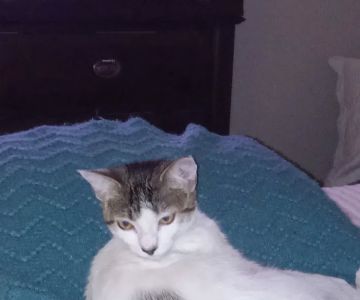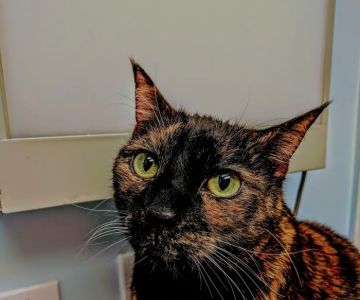Common Health Problems in Senior Cats
As our feline friends grow older, just like humans, they become more susceptible to various health issues. Senior cats, typically those over 7 years of age, often experience a decline in their overall health, and it’s essential for cat owners to be aware of the most common problems so they can take action early. In this article, we’ll delve into some of the most frequent health concerns in senior cats, as well as what you can do to keep your elderly companion comfortable and healthy for as long as possible.
1. Arthritis in Older Cats
Arthritis, or the inflammation of joints, is one of the most common health issues in senior cats. It can affect any joint in the cat’s body, but it typically manifests in the hips, knees, and elbows. Cats are notorious for hiding pain, so symptoms of arthritis might be subtle, such as reduced activity, difficulty jumping, or a change in posture. If you notice that your senior cat is more reluctant to move or seems uncomfortable, it’s important to consult with your veterinarian.
Regular veterinary check-ups and appropriate medications can help manage arthritis symptoms. Additionally, ensuring your cat has a warm, soft bed and easy access to food, water, and litter boxes can help ease their discomfort. In some cases, joint supplements or anti-inflammatory medications may be recommended by your vet.
2. Dental Disease in Senior Cats
Just like in humans, dental health is a crucial part of a senior cat's overall well-being. Dental disease, including gingivitis and periodontal disease, is extremely common in older cats. Cats may experience bad breath, difficulty eating, or even excessive drooling due to dental issues. Left untreated, dental disease can lead to tooth loss and affect your cat's internal organs, including the heart and kidneys.
Regular dental check-ups and home dental care, such as brushing your cat’s teeth or providing dental treats, can significantly reduce the risk of dental disease. If your cat has severe dental problems, a professional cleaning by a veterinarian may be necessary.
3. Kidney Disease in Senior Cats
Chronic kidney disease (CKD) is one of the most common diseases in senior cats. As cats age, their kidneys become less efficient at filtering waste from the blood. Symptoms of kidney disease include increased thirst and urination, weight loss, poor coat condition, and lethargy. Early detection is key in managing this condition.
If your senior cat is diagnosed with CKD, your vet may recommend a special diet, hydration support (such as subcutaneous fluids), and regular monitoring of kidney function. With appropriate treatment, many cats can live comfortably for years after a CKD diagnosis.
4. Hyperthyroidism in Older Cats
Hyperthyroidism is another common condition in senior cats. This disease occurs when the thyroid gland produces too much thyroid hormone, which speeds up the metabolism and can lead to symptoms such as weight loss despite an increased appetite, vomiting, diarrhea, and hyperactivity. If left untreated, hyperthyroidism can lead to heart problems, high blood pressure, and other complications.
Treatment options for hyperthyroidism include medication to control hormone production, radioactive iodine therapy, or surgery to remove the thyroid tumor. If caught early, hyperthyroidism is manageable, and many cats lead normal lives with treatment.
5. Heart Disease in Senior Cats
Heart disease is often underdiagnosed in older cats because its symptoms can be very subtle. Common signs include lethargy, difficulty breathing, a decrease in activity, and a loss of appetite. Hypertrophic cardiomyopathy (HCM), which is the thickening of the heart muscles, is the most common form of heart disease in cats.
If your cat is showing signs of heart trouble, your vet may recommend diagnostic tests such as X-rays, an echocardiogram, or blood tests. Treatment typically involves medication to manage the symptoms and improve the cat's quality of life. Early detection and proper management are crucial in slowing the progression of heart disease.
6. Diabetes in Senior Cats
Diabetes is a metabolic disorder that becomes more prevalent in senior cats, particularly those who are overweight. Diabetes occurs when the body either doesn’t produce enough insulin or becomes resistant to it, leading to high blood sugar levels. Symptoms of diabetes include increased thirst and urination, weight loss, and lethargy.
Managing diabetes in cats requires regular insulin injections and a consistent feeding schedule. With proper care, many diabetic cats live long, healthy lives. Regular blood glucose monitoring and veterinary check-ups are essential to ensure the disease is being properly managed.
7. Cancer in Senior Cats
Sadly, cancer is more common in older cats. While there are several types of cancer, some of the most frequently seen in senior cats are lymphoma, mammary tumors, and squamous cell carcinoma. Symptoms of cancer vary depending on the type and location, but common signs include unexplained weight loss, lumps or bumps, changes in appetite, and vomiting.
If you notice any unusual symptoms or changes in your cat's behavior, it’s crucial to consult with your vet as soon as possible. Early detection is essential for successful treatment, which may include surgery, chemotherapy, or palliative care to improve your cat’s comfort.
8. Weight Loss and Poor Appetite
As cats age, they may lose interest in food or become more selective with their diet. Weight loss is a significant concern for senior cats, and it can be indicative of various underlying health problems, including dental disease, kidney disease, or hyperthyroidism.
If your senior cat is losing weight or showing a decreased appetite, it’s essential to take them to the vet for a thorough examination. Your vet will perform tests to determine the cause and recommend treatment options, such as prescription diets or appetite stimulants.
How to Keep Your Senior Cat Healthy
Keeping your senior cat healthy requires a combination of regular vet visits, a well-balanced diet, and providing them with a comfortable living environment. Here are some general tips to help maintain your senior cat's health:
- Regular veterinary check-ups to catch any issues early.
- Providing a nutritious diet tailored to their age and health needs.
- Keeping your cat active and engaged with age-appropriate toys.
- Creating a comfortable environment with soft bedding and easy access to food, water, and litter boxes.
- Monitoring their weight and appetite and addressing any changes promptly.
By staying proactive and attentive to your senior cat’s health, you can ensure they enjoy their golden years with love, comfort, and care.











